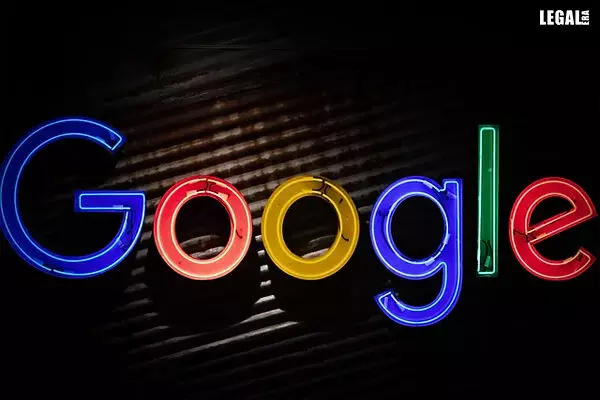- Home
- News
- Articles+
- Aerospace
- AI
- Agriculture
- Alternate Dispute Resolution
- Arbitration & Mediation
- Banking and Finance
- Bankruptcy
- Book Review
- Bribery & Corruption
- Commercial Litigation
- Competition Law
- Conference Reports
- Consumer Products
- Contract
- Corporate Governance
- Corporate Law
- Covid-19
- Cryptocurrency
- Cybersecurity
- Data Protection
- Defence
- Digital Economy
- E-commerce
- Employment Law
- Energy and Natural Resources
- Entertainment and Sports Law
- Environmental Law
- ESG
- FDI
- Food and Beverage
- Gaming
- Health Care
- IBC Diaries
- In Focus
- Inclusion & Diversity
- Insurance Law
- Intellectual Property
- International Law
- IP & Tech Era
- Know the Law
- Labour Laws
- Law & Policy and Regulation
- Litigation
- Litigation Funding
- Manufacturing
- Mergers & Acquisitions
- NFTs
- Privacy
- Private Equity
- Project Finance
- Real Estate
- Risk and Compliance
- Student Corner
- Take On Board
- Tax
- Technology Media and Telecom
- Tributes
- Viewpoint
- Zoom In
- Law Firms
- In-House
- Rankings
- E-Magazine
- Legal Era TV
- Events
- News
- Articles
- Aerospace
- AI
- Agriculture
- Alternate Dispute Resolution
- Arbitration & Mediation
- Banking and Finance
- Bankruptcy
- Book Review
- Bribery & Corruption
- Commercial Litigation
- Competition Law
- Conference Reports
- Consumer Products
- Contract
- Corporate Governance
- Corporate Law
- Covid-19
- Cryptocurrency
- Cybersecurity
- Data Protection
- Defence
- Digital Economy
- E-commerce
- Employment Law
- Energy and Natural Resources
- Entertainment and Sports Law
- Environmental Law
- ESG
- FDI
- Food and Beverage
- Gaming
- Health Care
- IBC Diaries
- In Focus
- Inclusion & Diversity
- Insurance Law
- Intellectual Property
- International Law
- IP & Tech Era
- Know the Law
- Labour Laws
- Law & Policy and Regulation
- Litigation
- Litigation Funding
- Manufacturing
- Mergers & Acquisitions
- NFTs
- Privacy
- Private Equity
- Project Finance
- Real Estate
- Risk and Compliance
- Student Corner
- Take On Board
- Tax
- Technology Media and Telecom
- Tributes
- Viewpoint
- Zoom In
- Law Firms
- In-House
- Rankings
- E-Magazine
- Legal Era TV
- Events
U.S. Federal Court Orders Google to Pay $338.7 Million Over Chromecast Patent Infringement Case

U.S. Federal Court Orders Google to Pay $338.7 Million Over Chromecast Patent Infringement Case
The U.S. Federal Court in the Western District of Texas’s Waco division has found Alphabet’s Google of guilty of violating a software developer’s patent rights and has ordered Google to pay $338.7 million in damages. The jury determined that Google’s Chromecast and other devices infringed on patents owned by Touchstream Technologies, which were related to the technology of streaming videos from one screen to another.
Touchstream Technologies, also known as Shodogg, is a New York-based company. In its 2021 lawsuit, it claimed that its founder, David Strober, invented technology in 2010 that allows videos to be transferred from a small device, such as a smartphone, to a larger device, like a television. The complaint detailed a meeting between Google and Touchstream regarding this technology in December 2011. According to Touchstream’s complaint, Google had initially shown interest in their technology during their meeting in December 2011.
However, Google expressed disinterest in the technology two months later and subsequently launched its Chromecast media-streaming devices in 2013.
Touchstream argued that Google’s Chromecast, as well as its Home and Nest smart speakers, and third-party televisions and speakers with Chromecast capabilities, copied its innovations and infringed on three of its patents.
Google refuted these claims, denying any infringement on Touchstream’s rights and contending the patents in question were invalid. To defend itself, Google had previously challenged the validity of these patents in inter parts reviews at the Patent Trial and Appeal Board, arguing that they were based on obvious prior inventions.
The federal jury ultimately found in favor of Touchstream, and said Google must pay $338.7 million in damages, a mere two percent of the $15 billion profit its parent Alphabet reported in the first three months of this year.
In response to this verdict, Google’s spokesperson, Jose Castaneda, announced that the company will appeal the decision, emphasizing that they have always developed technology independently and have competed on the merits of their own ideas.
Touchstream lawyer, Ryan Dykal, expressed the company’s satisfaction with the verdict.


